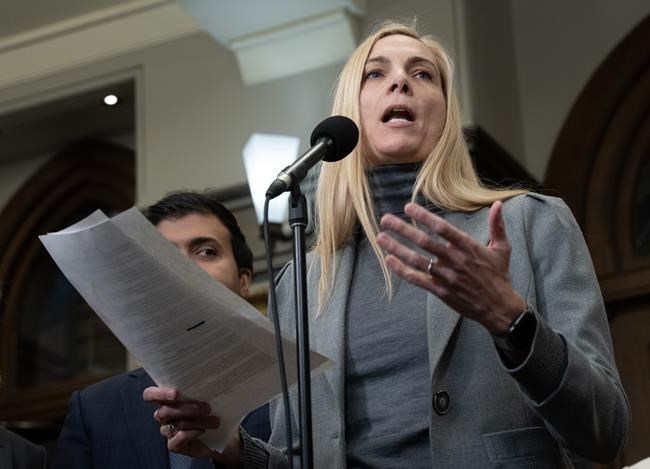OTTAWA — Heritage Minister Pascale St-Onge has signaled that she would like to see Meta regulated under the Online News Act, as social-media users find loopholes to share news on its platforms.
Meta began blocking news on Facebook and Instagram when Parliament passed the law this summer, arguing that this way it would avoid regulation by the Canadian Radio-television and Telecommunications Commission.
However, news remains accessible on Instagram for some Canadian users when they view posts from media organizations using an internet browser on their phone or computer.
Users have also found other ways to share news stories on Facebook and Instagram, by direct messaging news links, sharing screenshots of articles and shortening news links so they can appear on stories, which are photos and videos that disappear after 24 hours.
When asked if the CRTC should look into this, St-Onge said: "Absolutely."
"I cant wait to see what the CRTC will do when the law is fully enforced on Dec. 19," St-Onge said Tuesday.
The law is intended to help Canadian news organizations reach fair commercial agreements with the largest online platforms, such as search engines and social media sites, the CRTC has said.
For now, Google and Meta are the only companies that meet the criteria to be covered by the law.
While Meta has declined to negotiate with the Liberal government, Google struck its own deal with Canadian Heritage that would see the company pay $100 million yearly to news outlets. In return, news would remain on the tech giant's popular search engine.
Draft regulations released in September initially estimated that Google would provide $172 million per year, while the annual price tag for Facebook would be $62 million.
Meta restated its position on Tuesday.
"Unlike search engines, we do not proactively pull news from the internet to place in our users' feeds and we have long been clear that the only way we can reasonably comply with the Online News Act is by ending news availability for people in Canada," Lisa Laventure, a spokesperson for the company, said in a statement.
The company also said it has fixed a bug that allowed some news content to be viewed and shared on Instagram.
Meta said it doesn't believe the law applies to private messaging services, so it said users can still send news links through direct messages.
The CRTC could look into whether or not the Online News Act still applies to Meta, said Dwayne Winseck, a professor at Carleton University's School of Journalism and Communication.
"I think the Online News Act does apply to them. I think they've tried to be too clever by half, and it's going to come back and bite them," Winseck said Tuesday.
But he added that he doesn't think it's high on the government's priority list to deal with Meta "being a petulant child."
A spokesperson for the CRTC said it could not respond to questions before deadline on Tuesday.
When the Online News Act comes into force later this month, the CRTC will set up a framework for fair negotiations between news organizations in Canada and the largest online platforms that distribute their news content, the regulator said on its website.
The regulator is slated to oversee the mandatory bargaining process once it is in place, and also aims to launch a public consultation.
This report by The Canadian Press was first published Dec. 5, 2023.
Mickey Djuric, The Canadian Press



